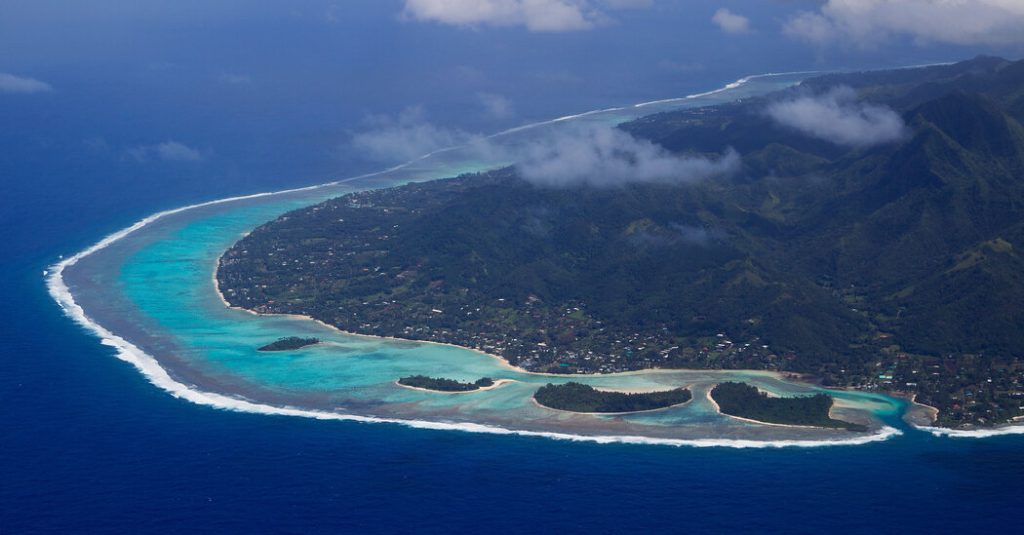Two ships arrived in the Cook Islands in the South Pacific in March of last year: a massive cruise ship and a neon-orange vessel hauling scientific equipment. The Prime Minister, Mark Brown, welcomed the vessels, with the former representing the country’s dependence on tourism and the latter potential wealth from mining the ocean floor for minerals used in electric car batteries. While seabed mining could generate significant revenue for the tiny country, environmentalists are concerned about the impact on the deep sea ecology. The government is expected to make a decision in 2027 on whether to allow seabed mining, facing pressure from critics who believe they are rushing the process without considering the potential consequences.
The Cook Islands, a self-governing chain of 15 islands once colonized by New Zealand, has seen interest in mining its territorial waters increase due to the discovery of nodules rich in cobalt and manganese on the seabed. These nodules, which grow slowly over time, have become a target for mining due to their potential to power the shift away from fossil fuels. Supporters argue that seabed mining can provide a source of minerals for electric vehicle batteries while causing less environmental harm than surface mining. However, opponents like marine biologist Teina Rongo fear the destruction of fragile deep-sea ecosystems and the long-term impact on marine life.
Critics of seabed mining in the Cook Islands worry about the government’s close relationship with mining companies and potential conflicts of interest. After the resignation of the head of the mining agency, allegations arose of ties between agency officials and mining companies conducting surveys in the country’s waters. The government maintains that it is taking a careful and science-based approach to seabed mining, with independent observers monitoring survey ships to ensure data accuracy. However, concerns persist about the undue influence of mining industry leaders on decision-making processes in the country.
While the public in the Cook Islands appears split on the issue of seabed mining, many believe that the government has already made up its mind to pursue the practice, regardless of public opinion. Teresa Manarangi-Trott, a supporter of seabed mining, led a government committee that gathered residents’ views on the matter. She expressed skepticism that the government would truly consider opposing perspectives in making their decision. The tension between the potential economic benefits of seabed mining and the environmental risks it poses continues to shape the debate in the Cook Islands, with the government facing increasing pressure to justify its approach to this controversial issue.


